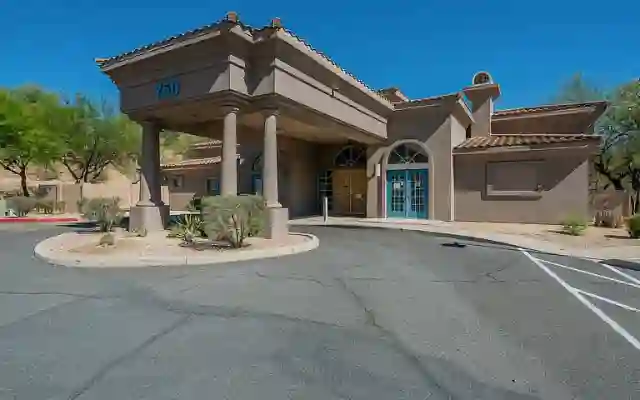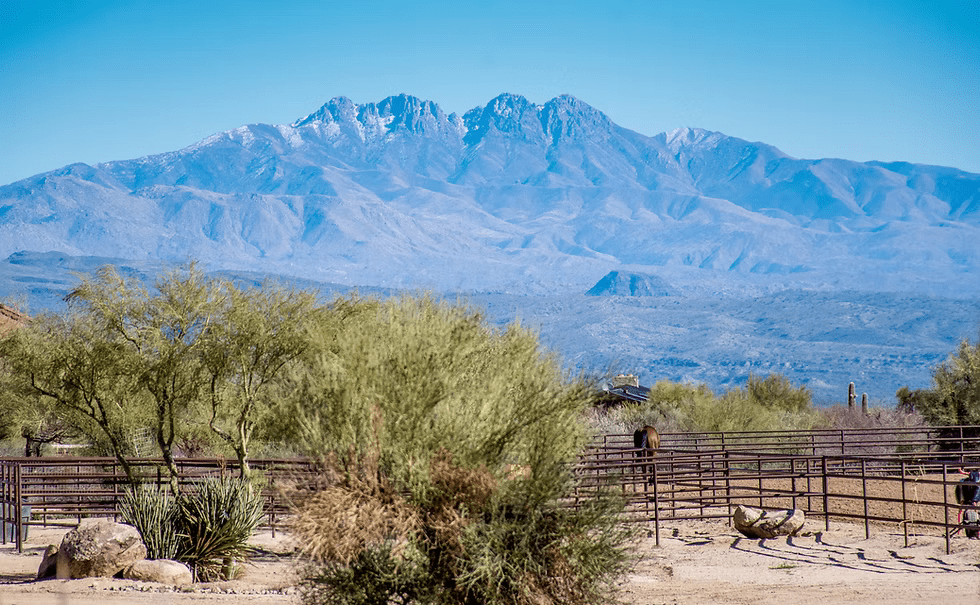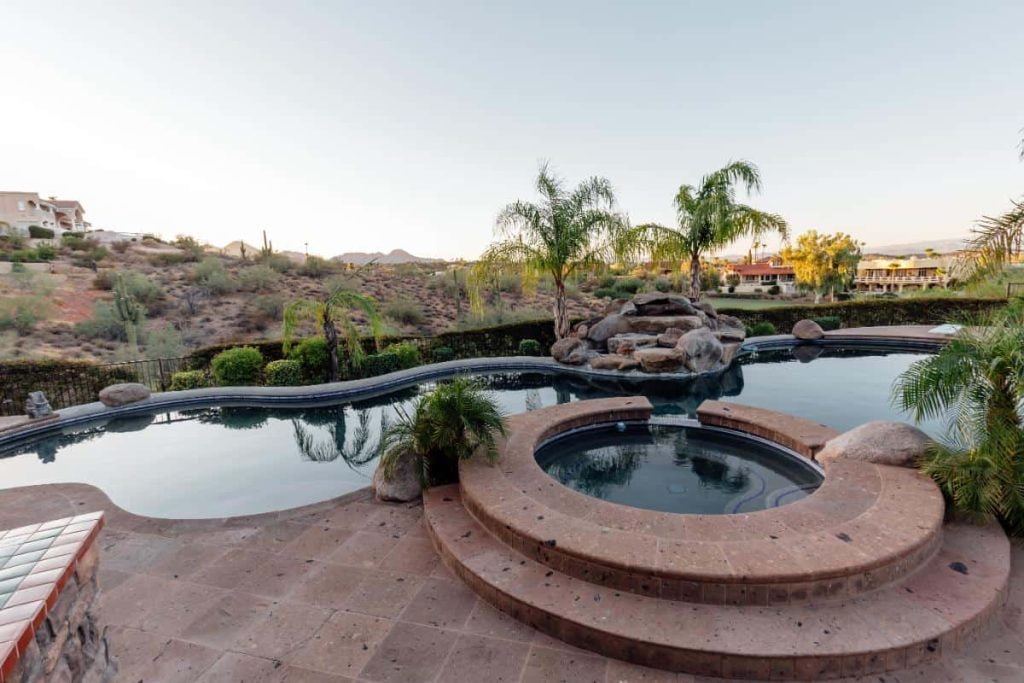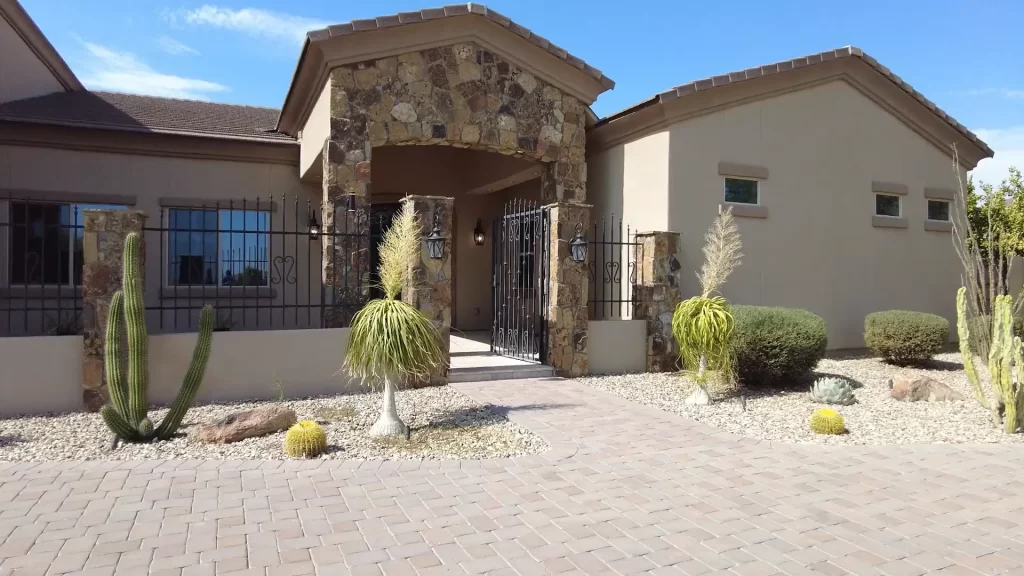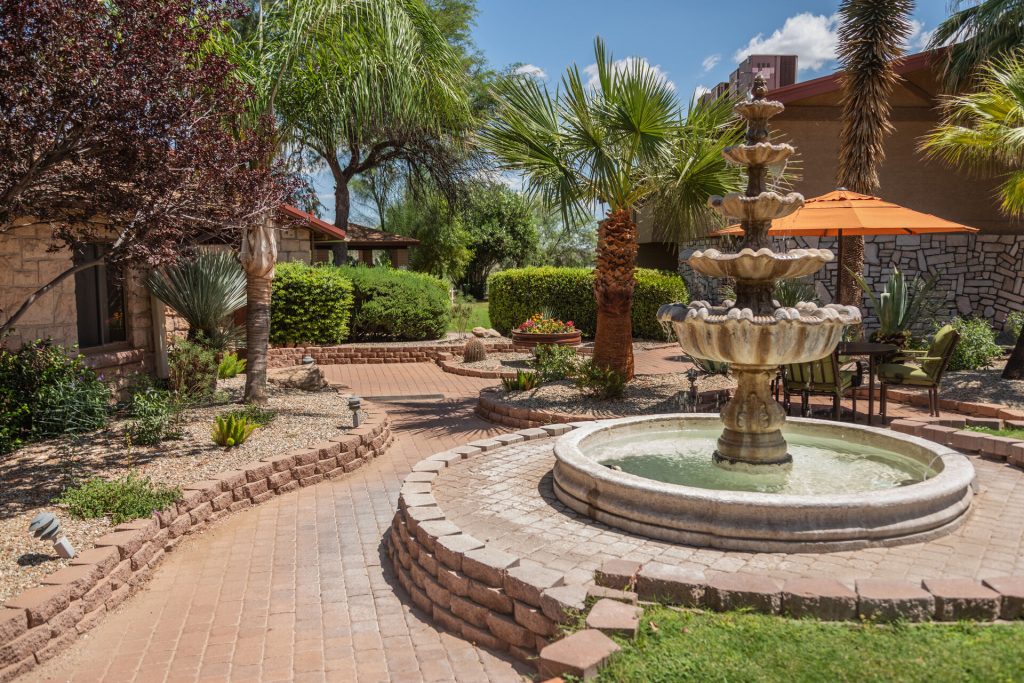Cottonwood Tucson (also known historically as Cottonwood de Tucson)
Cottonwood Tucson is a long-standing, CARF-accredited residential treatment center in Arizona on a 35-acre Sonoran Desert campus treating substance use and co-occurring mental health conditions. Executive programs blend evidence-based therapies with holistic and experiential modalities in a calm, private setting with chef-prepared nutrition and outdoor activities. The clinical model integrates medical detox, residential care, PHP/IOP,…
The Summit Sanctuary
The Summit Sanctuary is a luxury, 10-bed residential program in Scottsdale, Arizona, that treats primary mental health and co-occurring substance use with an executive-level experience. The estate setting, private rooms, and discreet service model pair with a robust clinical program that includes EMDR, IFS, TMS, and holistic therapies. The clinical philosophy blends evidence-based modalities with…
Fountain Hills Recovery
Fountain Hills Recovery is a Joint Commission–accredited, luxury behavioral health and addiction treatment center serving the Phoenix metro from residences in Fountain Hills and Scottsdale. The program blends evidence-based therapies with holistic modalities in private estate settings for a discreet, highly personalized experience. Executive treatment clients have access to multiple levels of care, from residential…
Camelback Recovery
Camelback Recovery is a luxury mental health clinic and addiction treatment center in Phoenix, Arizona, offering both inpatient and outpatient services for mental health, substance use disorders, and co-occurring conditions. They combine evidence-based clinical treatments with experiential modalities and a supportive, upscale environment. The center’s philosophy emphasizes personalized care: clients receive tailored treatment plans that…
The Meadows (also Meadows Behavioral Healthcare)
The Meadows is a long-standing, nationally recognized network of mental health and addiction treatment centers offering both inpatient psychiatric care and flexible outpatient services, including virtual IOPs. Their programs emphasize treating not just symptoms, but underlying trauma and co-occurring conditions, with a high rate of program completion and patient satisfaction. A Scenic and Private Treatment…
Why Trust ExecutiveRehabs
Since 2003, our expert team has built comprehensive resources on executive rehab centers that you can trust to find the right treatment for you.
Transparency and accuracy matter, and we believe you deserve nothing short of the best possible experience when reaching out for support.
FAQs on Executive Rehab
Arizona as a Treatment Destination for Professionals
Executive addiction treatment in Arizona must navigate the intersection of luxury, confidentiality, and regulatory complexity within a state whose major industries- technology, healthcare management, tourism, and real estate- place executives under unique pressures.
Arizona’s public system, AHCCCS, serves nearly 30 percent of the population and covers behavioral health through integrated managed care plans, but executive programs are almost exclusively private pay.
Executives seeking privacy, flexible scheduling, and high-staff-to-client ratios will find only a handful of Arizona facilities offering dedicated executive tracks among the state’s 446 substance use treatment centers.
Why Do Many Executives Seek Treatment Outside Arizona
Consequently, many high-profile professionals opt to travel out of state for treatment. Nearby luxury centers in Malibu (California), Hill Country (Texas), and the Rockies (Colorado) remain popular for their discreet locations, 24-hour technology access, and resort-level amenities.
Accessing executive rehab in Arizona often entails navigating insurance pre-authorizations and parity compliance under Jake’s Law, Arizona’s MHPAEA enforcement statute overseen by the Department of Insurance and Financial Institutions (DIFI).
While MHPAEA requires that substance use and mental health benefits be offered on par with medical benefits, in practice, executives face network limitations, prior-authorization delays, and high deductibles that can result in substantial out-of-pocket costs.
Many facilities require cash advance payment or proof of private coverage capable of covering $20,000 to $50,000 per week for luxury programming.
What distinguishes executive rehabs from general programs in Arizona?
- Confidentiality and Discretion
Executive programs in Arizona are licensed under state confidentiality laws and often go beyond HIPAA compliance with private entrances, non-disclosure agreements for staff, and secure electronic health records. - Amenities and Technology
Dedicated office spaces, secure high-speed internet, private conference rooms, and in-room workstations allow clients to maintain business continuity. On-site spa services, personal chefs, and fitness programming reduce the stress of treatment. - Flexible Scheduling and Personalized Care
Unlike standard inpatient schedules, executive tracks incorporate flexible therapy hours, telehealth options, and day-pass privileges for board meetings or urgent business matters. - Integration of Co-occurring Disorder Treatment
With one in three Arizona adults reporting a co-occurring mental health condition with substance use, executive programs commonly include psychiatrists and dual-diagnosis specialists on staff. - Aftercare and Local Reintegration
Graduates benefit from Arizona-based alumni networks, executive peer support groups in Phoenix and Tucson, and partnerships with top local outpatient providers to ensure continuity of care upon return to leadership roles.
What are the Challenges Unique to Arizona Executives?
Arizona’s hot and arid climate, coupled with long-haul travel to destination rehabs, can create physical strain during detox. In-state programs address this by providing climate-controlled facilities and personalized wellness plans.
The high-growth tech corridor and healthcare leadership roles in Phoenix carry chronic stressors, 24/7 decision demands, regulatory pressures, and investor scrutiny, which executive programs tackle through targeted stress-management curricula and resilience coaching.
Out-of-State Destinations Chosen by Arizona Executives
- California Coast: Renowned centers in Malibu offer secluded beachfront properties and celebrity discretion.
- Texas Hill Country: Ranch-style campuses provide equine therapy and wide-open spaces for outdoor recovery.
- Colorado Rockies: Mountain retreat centers combine altitude training, wilderness therapy, and ski-season programs to foster resilience.
FAQs on Arizona as an Executive Rehab Destination
How confidential is executive rehab in Arizona?
All facilities must comply with state and federal privacy laws, but executive tracks add layers of discretion—private entrances, staff NDAs, and dedicated security—to protect high-profile identities.
Can executive amenities be covered by insurance?
Most insurers cover core clinical services under MHPAEA, but not luxury add-ons. Executives typically pay cash for premium lodging, chef services, and spa treatments.
What is the average cost for an executive rehab program in Arizona?
Packages range from $20,000 to $50,000 per week, depending on amenities, staffing ratios, and length of stay.
Where do Arizona executives go if local options are limited?
Popular destinations include Malibu (CA), Hill Country (TX), and the Colorado Rockies, chosen for their privacy, specialty programs, and luxury settings.
Source List and Citations
Arizona Department of Insurance and Financial Institutions, “Jake’s Law: Enforcement of MHPAEA in Arizona,”
https://difi.az.gov/sites/default/files/MHP%20Report%20Jan%202023%20final%201.5.23%20(2).pdf
Substance Abuse and Mental Health Services Administration, National Survey of Substance Abuse Treatment Services, Arizona State Profile 2019,
https://www.samhsa.gov/data/sites/default/files/quick_statistics/state_profiles/NSSATS-AZ19.pdf
Arizona Department of Insurance and Financial Institutions, “Update on Jake’s Law Activities,”
https://difi.az.gov/sites/default/files/MHP%20Report%20Jan%202023%20final%201.5.23%20(2).pdf
SAMHSA, Behavioral Health Barometer: Arizona, Volume 6 (2020),
https://www.samhsa.gov/data/sites/default/files/reports/rpt32819/Arizona-BH-Barometer_Volume6.pdf

